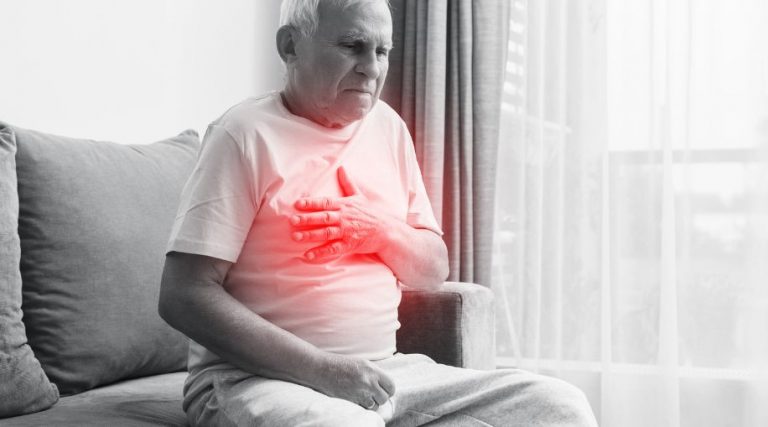Whispers of Danger
Lung cancer may present various symptoms. Early recognition is vital for prompt medical attention, potentially improving outcomes. In this article, we're sharing the ten most common lung cancer symptoms, foods, warning signs and treatment options. As a treatment option, consider ZEMAIRA, a brand name for a medication used in the treatment of alpha-1 antitrypsin deficiency (AATD).
Warning Signs of Lung Cancer
Beware of these warning signs:
- Persistent cough.
- Chest pain.
- Shortness of breath.
- Coughing up blood.
- Unexplained weight loss.
- Hoarseness.
- Fatigue.
- Frequent respiratory infections.
- Wheezing.
10 Lung Cancer Symptoms
Below are 10 symptoms of lung cancer you should know:
1. Persistent Cough
A persistent cough is one of the most obvious symptoms of lung cancer. In this case, "persistent" means lasting 2-3 weeks or more. This time frame is key as many different conditions can cause a cough as a symptom. Coughing is your body’s way of trying to remove anything that is irritating the airways and is perfectly normal most of the time.
However, when a cough lasts for more than a couple of weeks, it should be investigated by a doctor. This is also true if an existing cough suddenly changes or gets worse. Recurrent chest infections or pneumonia could also be a symptom of lung cancer, so these should be checked out too.
2. Coughing with Blood or Phlegm
A cough due to lung cancer may produce large amounts of phlegm or even blood. This blood could appear as red streaks in the sputum, or the sputum itself could be a dark, rusty color.
3. Shortness of Breath
When a cancerous tumor forms in the lungs, it can press on the airways, making it difficult to breathe. The medical term for this lung cancer symptom is dyspnea, and it occurs when performing everyday activities as well as with exercise.
Lung cancer may also cause fluid to build up around the lungs, a condition known as pleural effusion. This can contribute to dyspnea, making the chest feel tight and making it harder to breathe deeply.
4. Fatigue
It is common for people with lung cancer to feel very tired or lacking in energy. This is because cancer causes the body to work harder than normal, in an attempt to control it and stop its spread.
5. Unexplained Weight Loss
Another common lung cancer symptom to look out for is unexplained weight loss. This means losing weight without making any changes to your diet or exercise regime.
There are several possible reasons why people with lung cancer may lose weight rapidly. Firstly, they may experience loss of appetite along with symptoms such as nausea.
Secondly, tumors in the chest can make chewing and swallowing food more difficult.
Finally, the body is expending extra energy in trying to fight against the cancer. All of these factors can combine to cause weight loss.
Related Search Topics (Ads)
6. Chest, Upper Back, or Shoulder Pain
Lung cancer can cause pain in the chest, upper back and shoulders. This pain will be worse with deep breathing, laughter or coughing.
Although many other conditions can cause pain in these areas, you should always have these symptoms investigated by a doctor.
7. Clubbed Fingers
Some people with lung cancer develop clubbed fingers as a result of reduced oxygen in the blood; the tops of the fingers may appear rounded or larger than normal.
8. Superior Vena Cava Syndrome
The vena cava is the major vein that leads into the heart. When a tumor forms in the chest, it can press on the vena cava, causing a variety of issues. These symptoms include:
- Swelling in the face, neck and arms.
- Dizziness.
- Headaches.
- Cough and shortness of breath.
9. Horner Syndrome
Horner syndrome is a collection of symptoms that can occur alongside lung cancer. These symptoms are a result of a tumor pressing on the nerves that supply the eyes and face. The symptoms of Horner syndrome include:
- Severe neck or shoulder pain.
- Drooping eyelid on one side.
- The pupil of the eye appears smaller than usual.
- Reduced sweating on the affected side of one’s face.
10. Paraneoplastic Syndrome
Some people with lung cancer experience a group of symptoms known as paraneoplastic syndrome. This happens when the cancer causes abnormal hormone release, triggering symptoms throughout the body. These symptoms include:
- Muscle weakness.
- Nausea or vomiting.
- Fluid retention.
- High blood pressure.
- Confusion.
- Seizures.
- Coma.
Foods to Eat and Avoid
Foods to Eat with Lung Cancer
- Fruits and vegetables (especially colorful ones).
- Whole grains.
- Lean proteins (e.g., poultry, fish, legumes).
- Healthy fats (e.g., avocados, nuts, olive oil).
- Green tea.
- Ginger.
- Turmeric.
- Garlic.
Foods to Avoid with Lung Cancer
- Processed meats.
- Sugary foods and drinks.
- Fried and heavily processed foods.
- Excessive salt.
- Alcohol.
- Red meat (in excess).
- High-fat dairy products.
- Foods with additives and preservatives.
Home Remedies for Lung Cancer
Some supportive measures may help improve the overall well-being of individuals with lung cancer or those undergoing cancer treatments. These may include:
- Healthy diet: Focus on a balanced diet rich in fruits, vegetables, whole grains and lean proteins to support overall health and immune function.
- Exercise: Engage in light to moderate physical activity, as tolerated, to maintain strength and energy levels.
- Breathing exercises: Deep breathing exercises can help with relaxation and lung capacity.
- Support network: Seek emotional support from family, friends or support groups to cope with the challenges of lung cancer.
- Stay hydrated: Drink plenty of fluids to stay well-hydrated, especially if undergoing cancer treatments.
- Avoid tobacco: If you are a smoker, quitting smoking is essential to improve lung health and overall outcomes.
Treatment Options for Lung Cancer
Treatment options for managing lung cancer include:
- Surgery: Removal of the tumor and nearby lymph nodes.
- Radiation therapy: High-energy rays to target and kill cancer cells.
- Chemotherapy: Systemic drugs to destroy cancer cells.
- Targeted therapy: Drugs targeting specific genetic mutations in cancer cells.
- Immunotherapy: Boosting the immune system to fight cancer.
- Palliative care: Focus on symptom relief and improving quality of life.
- Clinical trials: Participation in research studies for new treatments.
Tagrisso for Metastatic Small Cell Lung Cancer (SCLC)
Tagrisso, with the generic name osimertinib, is a medication used to treat a type of lung cancer called non-small cell lung cancer (NSCLC). It is specially designed for patients with NSCLC who have a specific genetic mutation known as T790M in the epidermal growth factor receptor (EGFR) gene. Tagrisso works by targeting this mutation, helping to slow down or stop the growth of cancer cells in the lungs.
Zepzelca for Metastatic Small Cell Lung Cancer
Zepzelca, also known by its generic name lurbinectedin, is a medication used in the treatment of metastatic small cell lung cancer (SCLC). It is typically prescribed for patients with SCLC whose disease has progressed after platinum-based chemotherapy. Zepzelca works by inhibiting RNA polymerase II, a key enzyme involved in transcription, ultimately disrupting the growth of cancer cells.
ZEMAIRA for Alpha-1 Antitrypsin Deficiency (AATD)
Zemaira is a medication used to treat a condition called alpha-1 antitrypsin deficiency (AATD). Alpha-1 antitrypsin is a protein made in the liver, and it helps protect the lungs and liver from damage caused by inflammation. When there's not enough of this protein, it can lead to problems with breathing and liver function.
Zemaira is a specific type of medicine called an alpha-1 proteinase inhibitor. It's given through an intravenous (IV) infusion, meaning it's delivered directly into the bloodstream. By providing the missing alpha-1 antitrypsin, Zemaira helps prevent damage to lung tissue, especially in the lower respiratory tract. This is important for individuals with AATD, as it can help manage respiratory issues associated with the condition.
Spotting the Signs
As with all types of cancer, the prognosis for lung cancer is best when it is caught early on.
These are 10 of the most common lung cancer symptoms that everyone should know about. Although many of them could be due to a less serious condition, it is still essential to get them checked out by a doctor straight away.
By catching cancer in its early stages, you can greatly improve your chances of survival. So, always play it safe with these lung cancer symptoms and see a physician as soon as possible.
Check out some of the silent signs of colon cancer.

